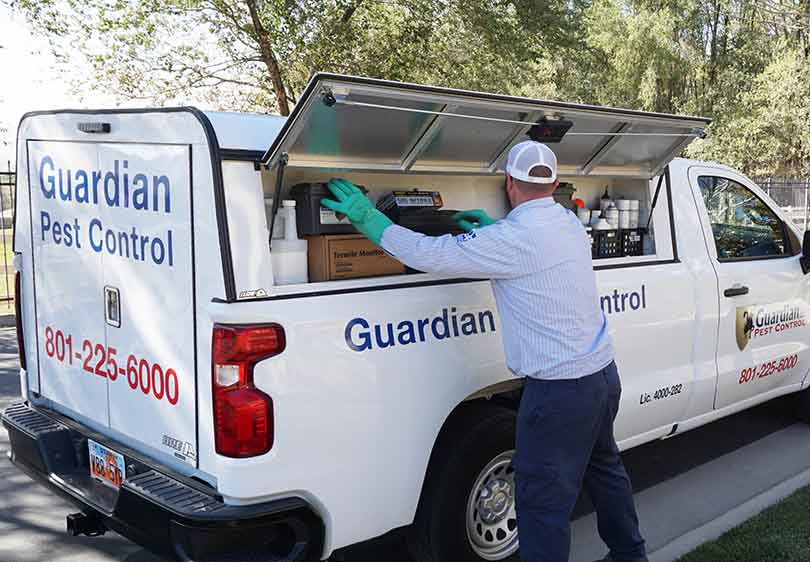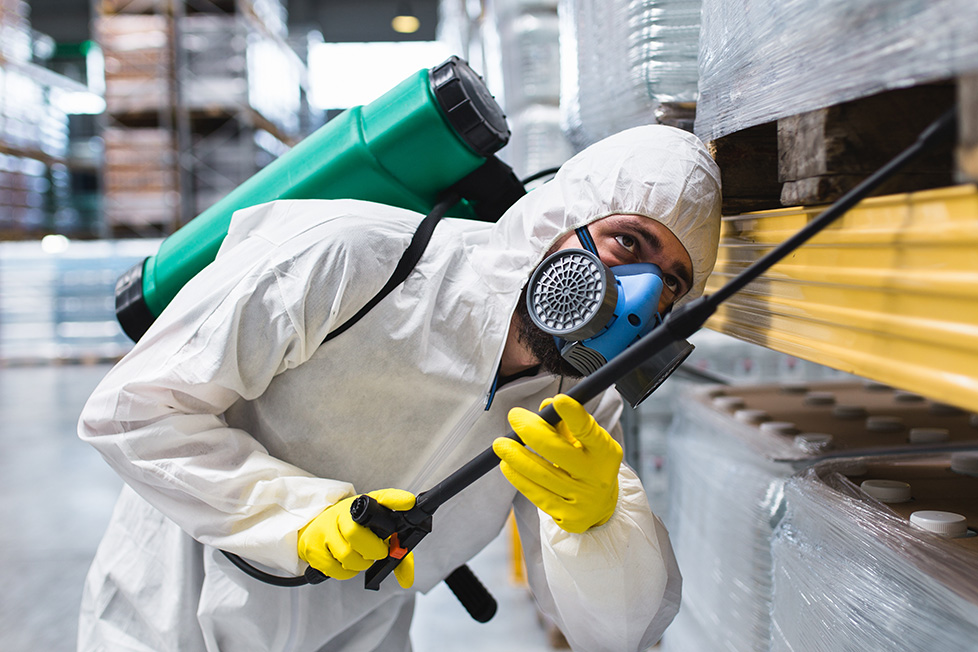Say Goodbye to Unwanted Visitors: Orem Pest Control at Your Solution
Say Goodbye to Unwanted Visitors: Orem Pest Control at Your Solution
Blog Article
Discovering the Different Kinds of Bug Control Techniques and Their Applications
Bug control is a critical aspect of preserving a risk-free and healthy environment, whether it remain in domestic, commercial, or agricultural setups. Numerous methods have actually been created and refined throughout the years to efficiently alleviate and take care of insect infestations. From chemical methods that target details pests to organic techniques that harness natural killers, the world of bug control is huge and diverse. Understanding the different kinds of parasite control methods and their applications is necessary for executing one of the most appropriate and lasting options. Let's discover the details of these approaches and exactly how they can be effectively made use of to deal with pest-related obstacles.
Chemical Pest Control Methods
Chemical pest control methods are extensively utilized in agriculture and pest monitoring to properly eliminate or regulate pest infestations. These approaches involve making use of chemical materials, such as herbicides, pesticides, and pesticides, to reduce or get rid of bug populaces that posture a risk to plants, animals, or human wellness. Pesticides, for instance, target particular bugs like pests, weeds, or rodents, interrupting their life process or triggering direct harm upon contact. Herbicides are particularly developed to manage undesirable plant life that competes with crops for nutrients and resources. Insecticides, on the other hand, are utilized to deal with insect bugs that can harm plants and send illness.
While chemical bug control methods can be highly effective in handling bug populations, they likewise increase concerns concerning prospective environmental and health threats. Inappropriate use or overuse of chemical pesticides can cause pollution of air, dirt, and water, hurting non-target organisms and causing lasting eco-friendly damage. Additionally, repeated direct exposure to chemical deposits may position health risks to farmworkers, consumers, and wild animals. For this reason, it is essential to follow safety and security guidelines, use incorporated pest administration methods, and take into consideration alternate methods to reduce the negative influences of chemical pest control strategies.
Organic Pest Control Methods
 Biological insect control methods make use of living organisms to take care of and minimize pest populations in a lasting and ecologically pleasant way. One typical approach is the release of ladybugs to fight aphids in gardens, as ladybugs are all-natural predators of these harmful insects.
Biological insect control methods make use of living organisms to take care of and minimize pest populations in a lasting and ecologically pleasant way. One typical approach is the release of ladybugs to fight aphids in gardens, as ladybugs are all-natural predators of these harmful insects.
Organic insect control methods use numerous benefits over chemical approaches. In general, organic parasite control approaches provide a effective and natural alternative to typical chemical therapies, advertising a well balanced environment and much healthier settings.
Physical Bug Control Approaches
Utilizing physical techniques to control parasites entails using mechanical or non-chemical means to reduce and manage parasite problems effectively. These strategies count on physical barriers, traps, and various other methods to hinder and remove bugs without making use of damaging chemicals. One common physical pest control method is the setup of nets, displays, or fencings to obstruct pests from getting in details areas. This method is particularly reliable in shutting out bugs and tiny pets from gardens or structures.
An additional physical approach is making use of traps, such as breeze catches for rats or scent traps for bugs. These catches goal to record parasites without posing any kind of threat to human beings or the environment. Additionally, physical control methods can consist of methods like handpicking bugs off plants, utilizing vacuum cleaner gadgets to remove bugs, or utilizing warm treatments to remove bed insects and various other parasites in infested areas.
Integrated Pest Management Techniques
Carrying out an all natural strategy to pest management, Integrated Pest Management (IPM) approaches intend to integrate different effective strategies to manage and protect against insect problems while minimizing environmental impact and ensuring sustainable bug control practices. IPM entails about his the combination of multiple control approaches such as biological control, social practices, mechanical control, and the mindful usage of pesticides.

Moreover, IPM stresses the significance of surveillance and analyzing pest populations to identify one of the most suitable control techniques. By applying IPM strategies, insect control efforts come to be more targeted and effective, lowering the threats related to extreme pesticide use and promoting lasting bug monitoring options.
All-natural and Organic Pest Control Options

One prominent natural parasite control approach is neem oil, obtained from the seeds of the neem tree, which acts as a repellent and interferes with the growth and growth of insects. Diatomaceous planet, a natural silica-based powder, is one more effective organic insect control option that functions by dehydrating bugs upon call. By including all-natural and organic parasite control options right into insect administration strategies, individuals can effectively regulate bugs while reducing damage to the setting and advertising sustainable methods.
Verdict
In conclusion, different parasite control techniques such as chemical, biological, physical, incorporated pest monitoring, and all-natural alternatives are readily available for efficiently handling bug invasions. Each approach has its very own advantages and applications depending on the type of insect and the environment. By understanding the different kinds of bug control methods and their applications, people can make enlightened choices on one of the most proper method to control insects and safeguard their residential property.
Chemical pest control techniques are widely used in agriculture and pest management to effectively eliminate or manage pest infestations - Orem Pest Control. Natural pest control methods include utilizing biological control representatives, such Discover More Here as bloodsuckers or killers, to manage pest populaces. By including all-natural and organic bug control choices into insect management techniques, individuals can effectively regulate parasites while decreasing damage to the environment and advertising lasting methods
In conclusion, numerous bug control strategies such as chemical, organic, physical, integrated insect management, and all-natural alternatives are offered for successfully handling pest infestations. By comprehending the various kinds of parasite control strategies and their applications, individuals top article can make informed choices on the most appropriate strategy to manage parasites and shield their residential property.
Report this page